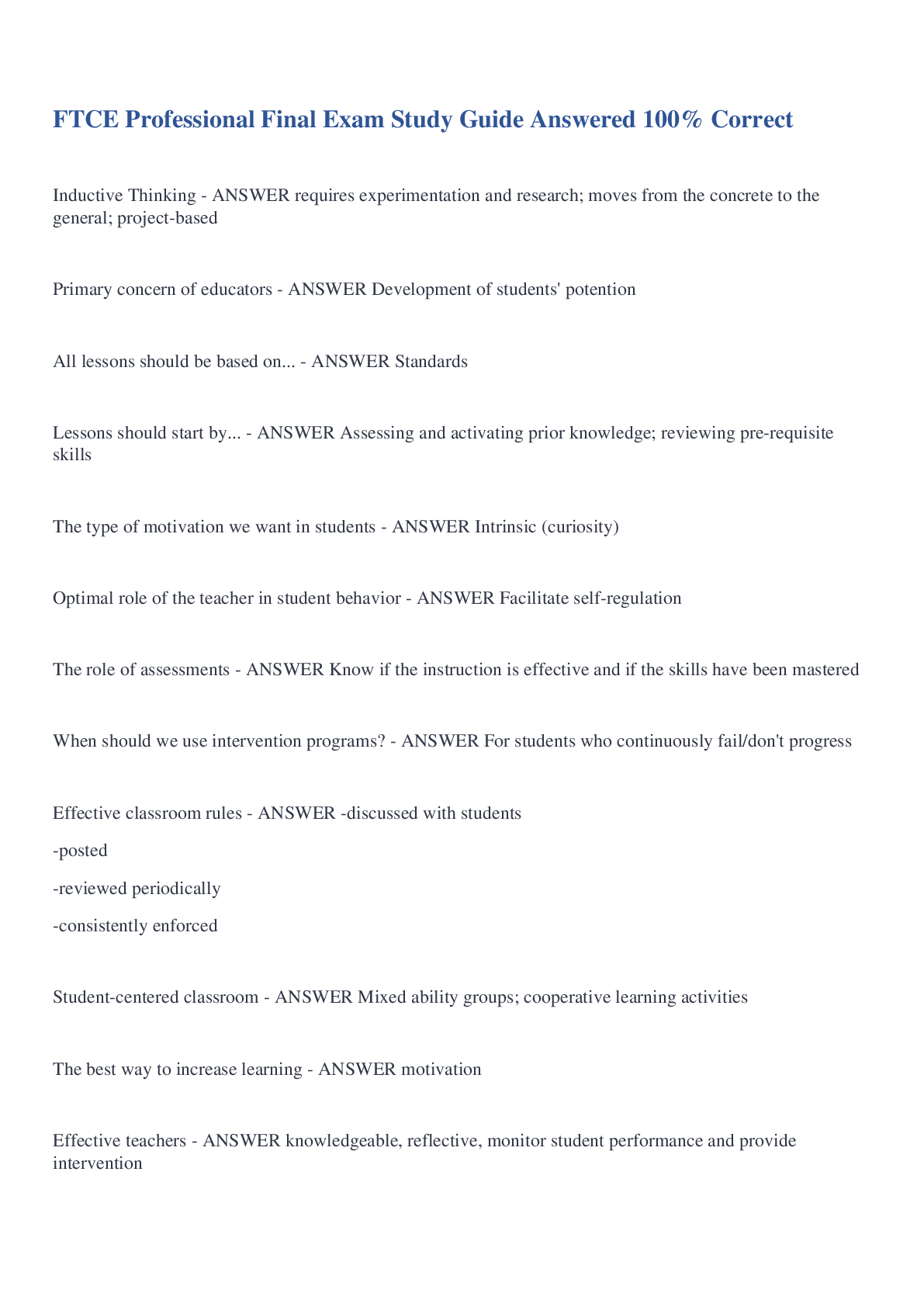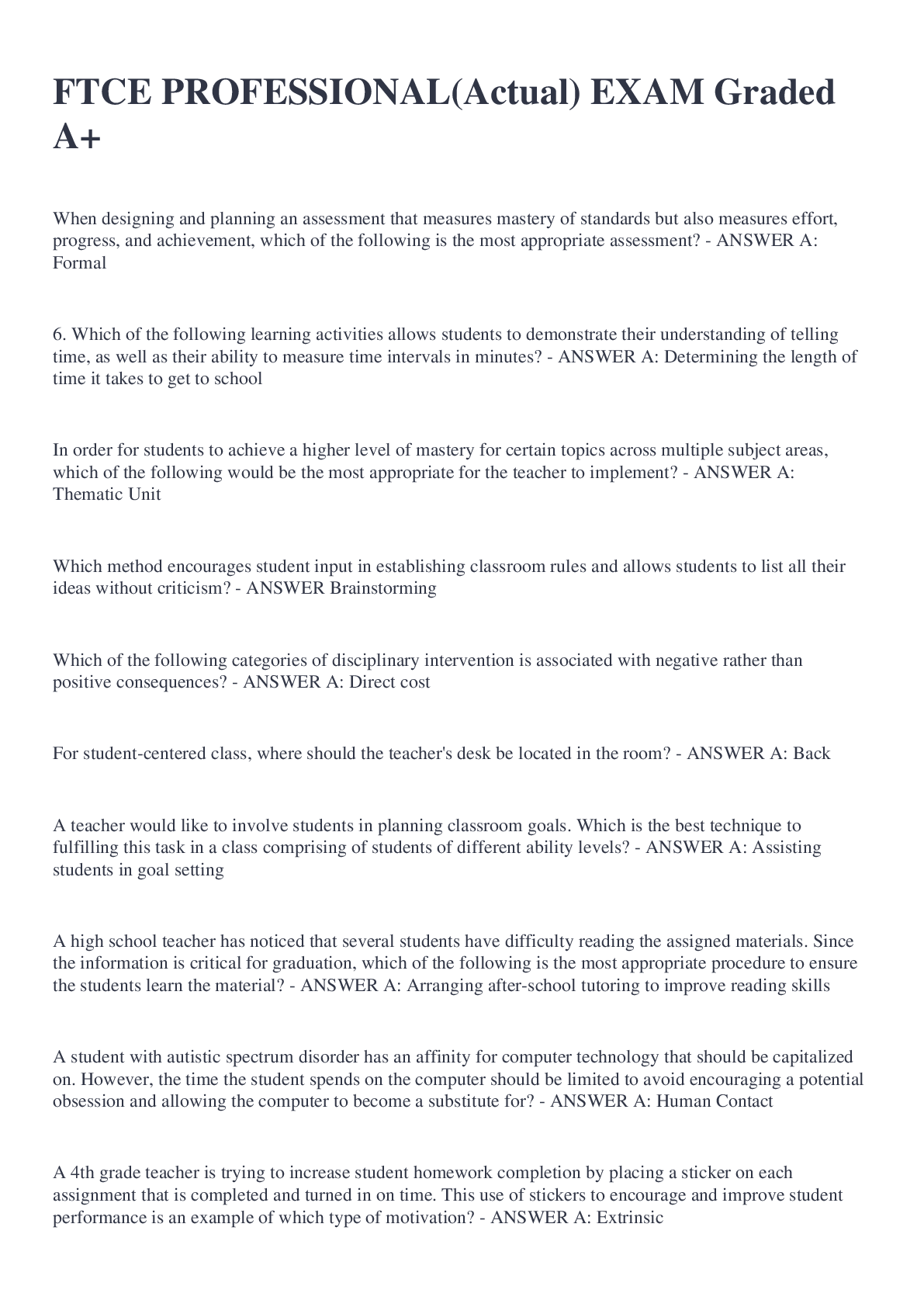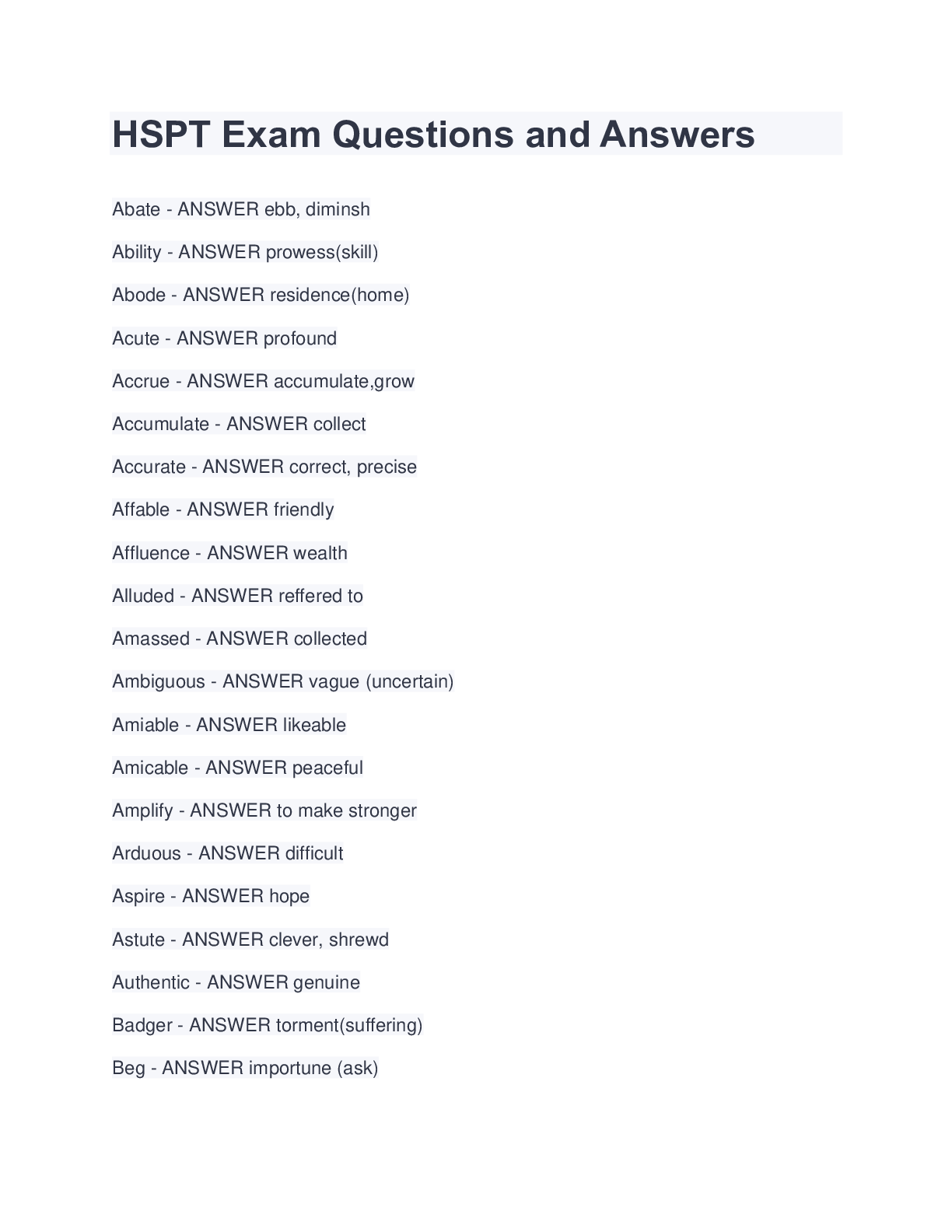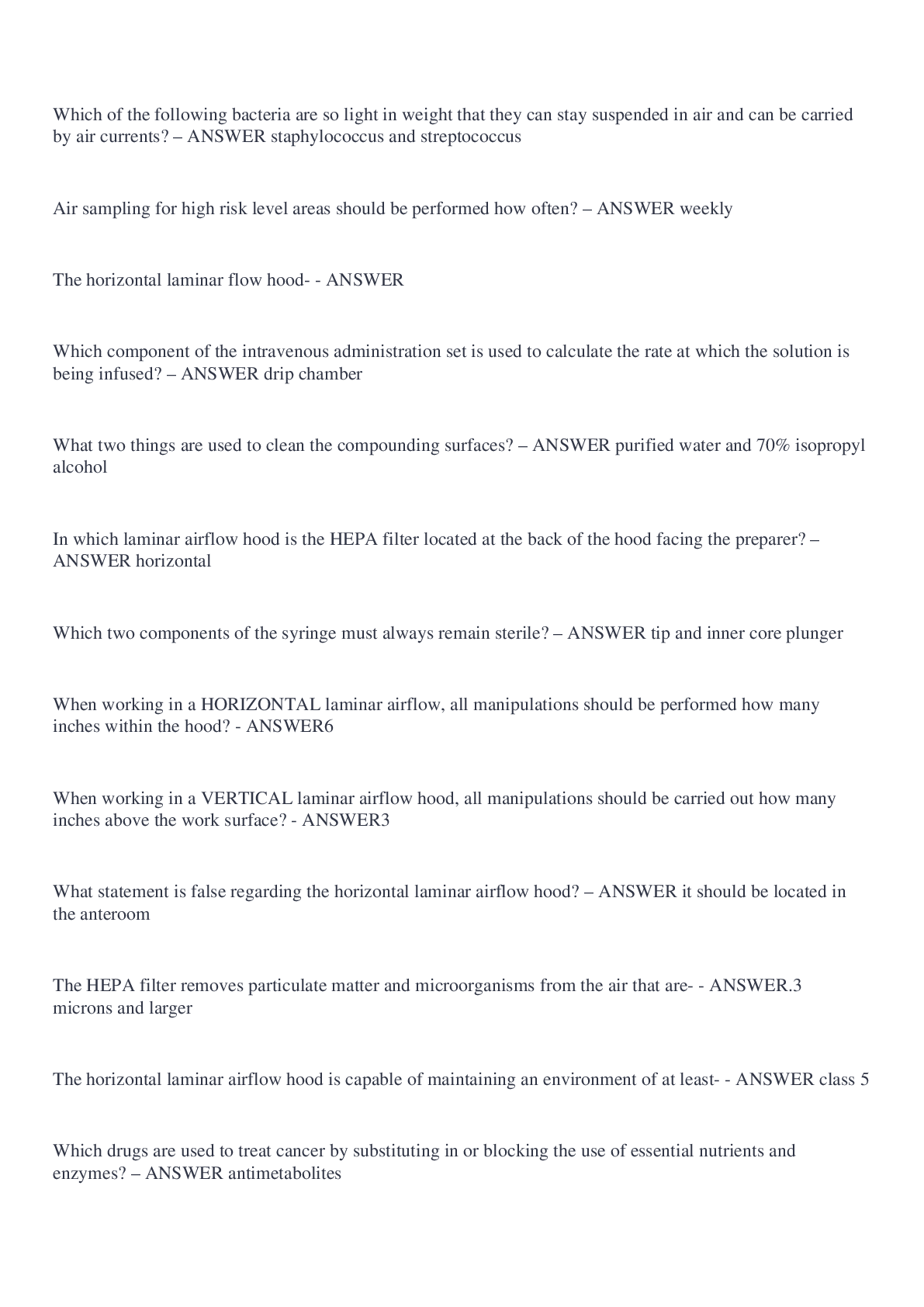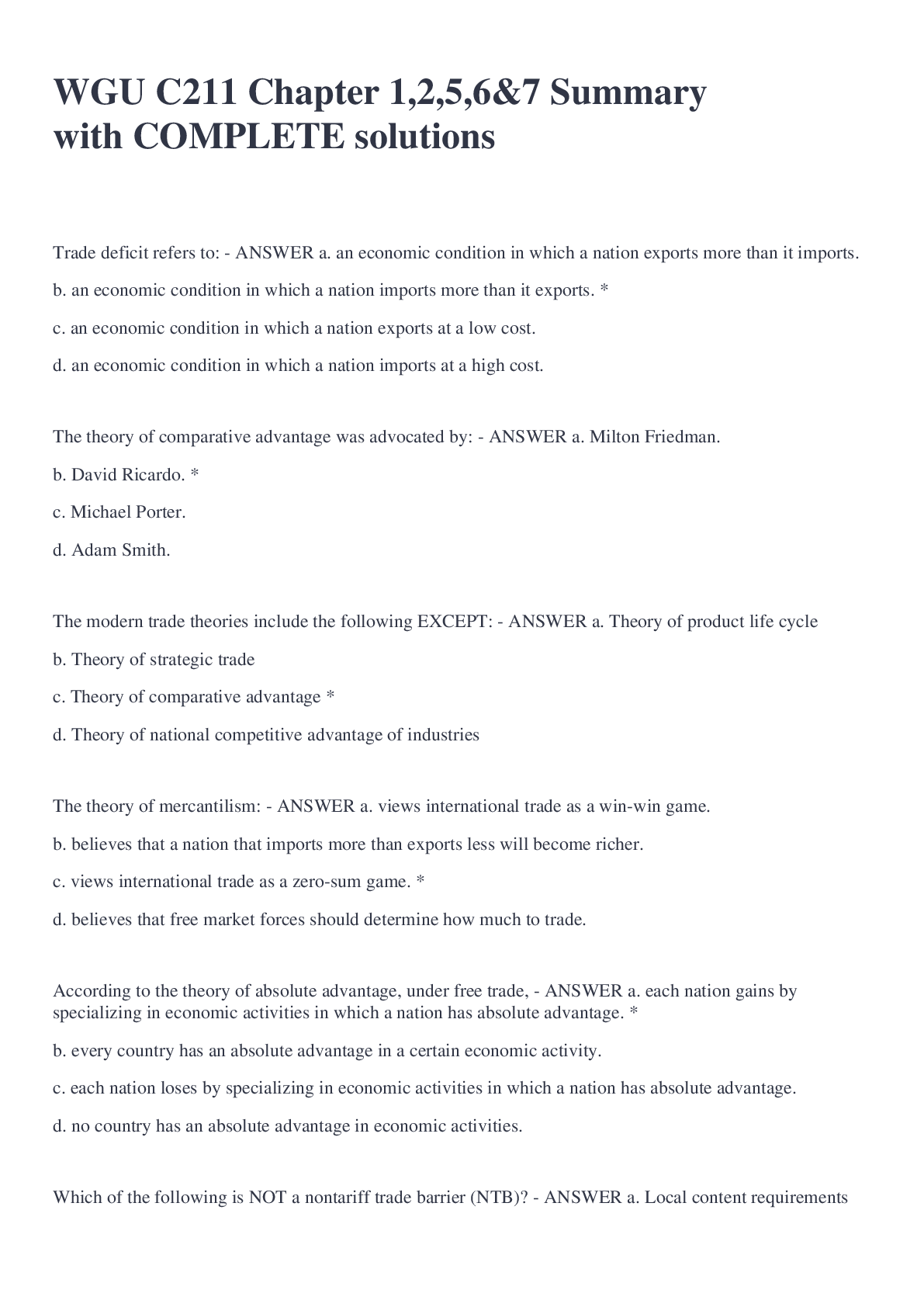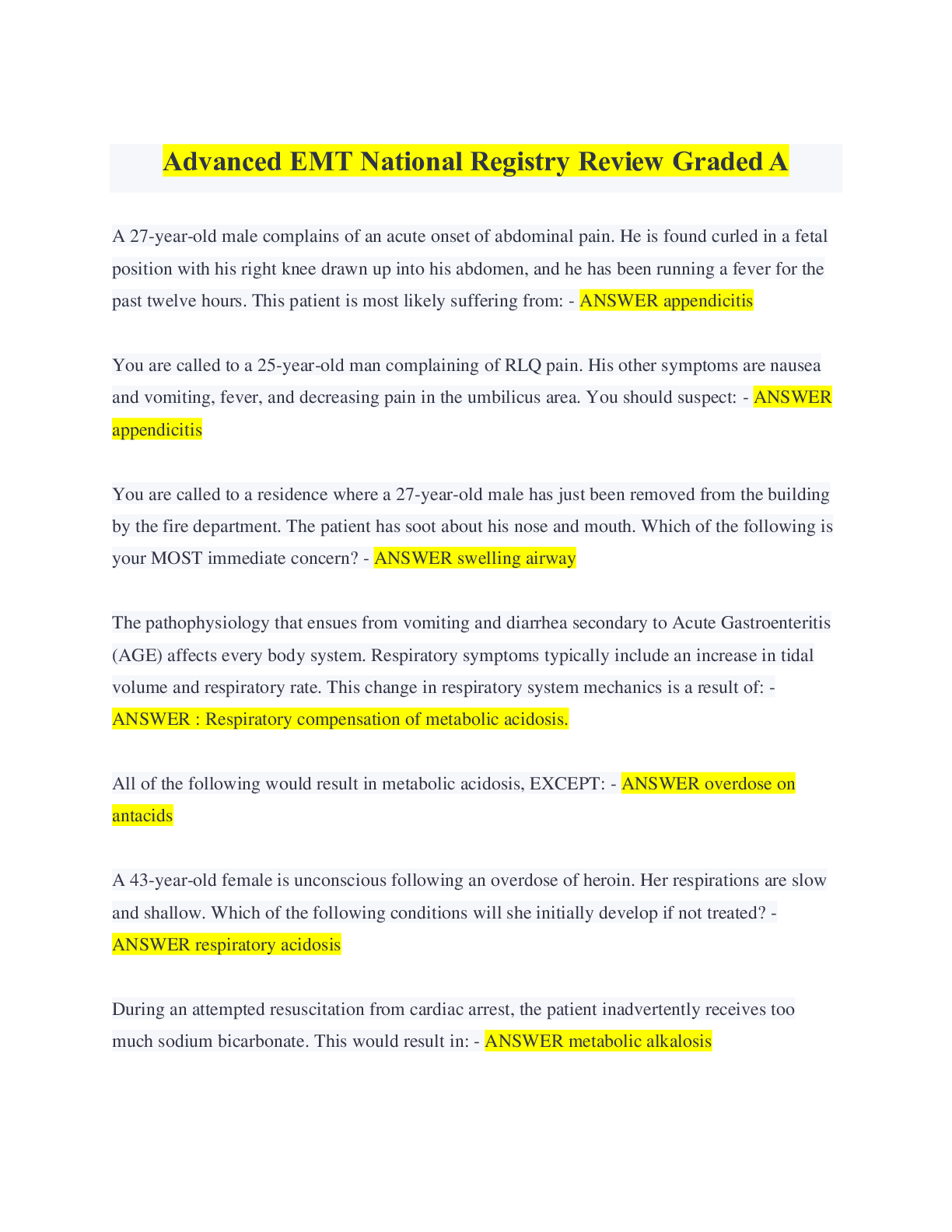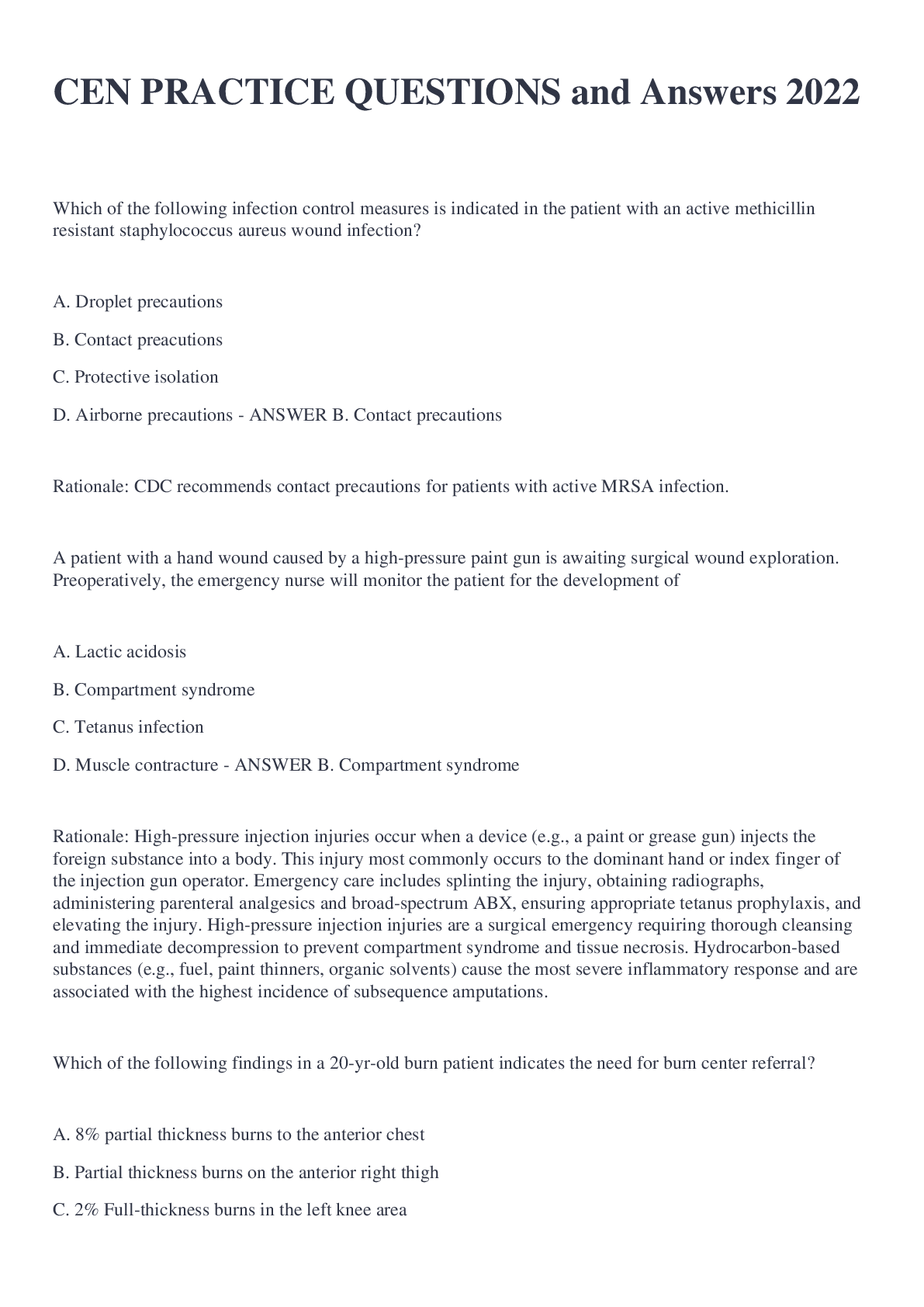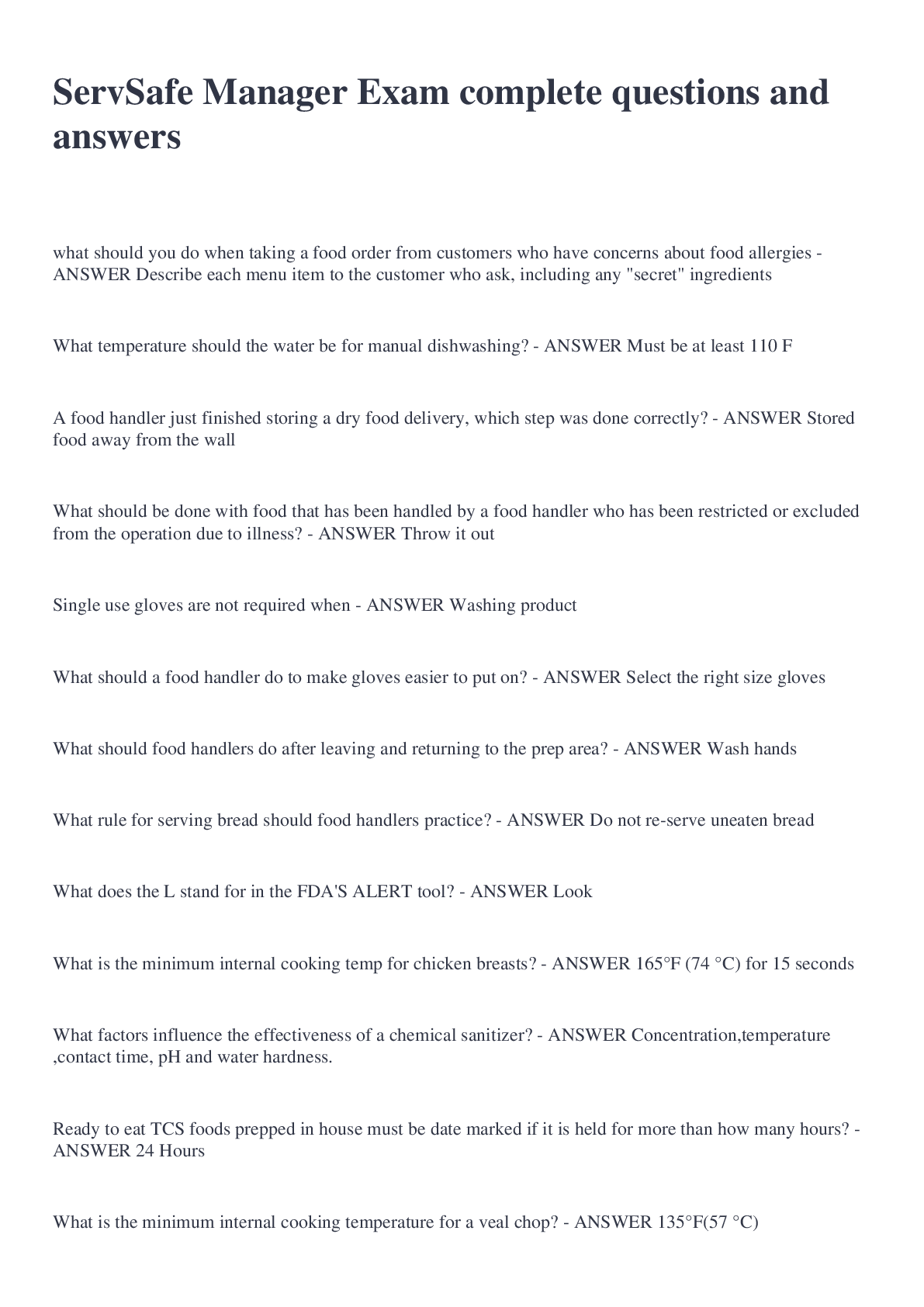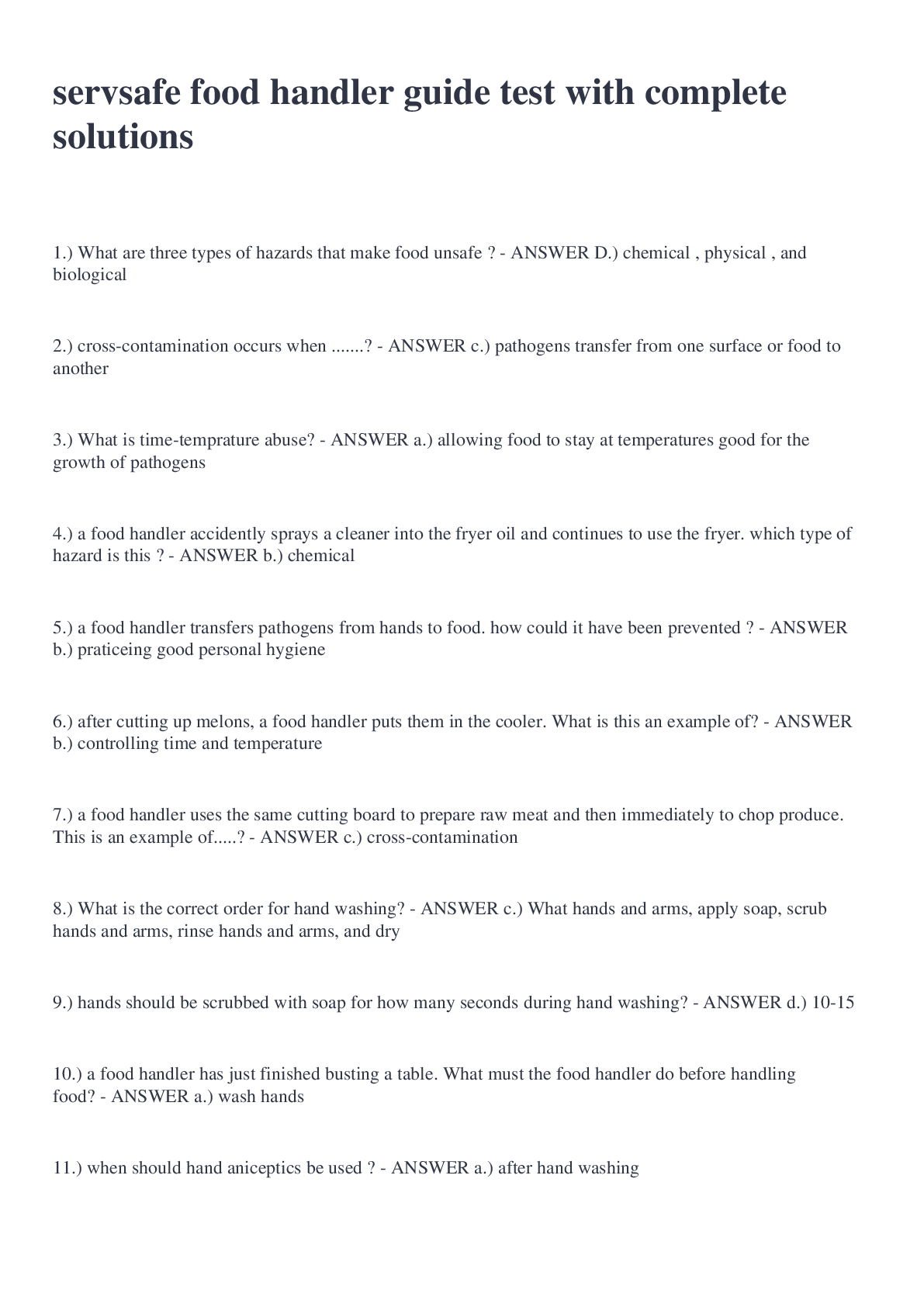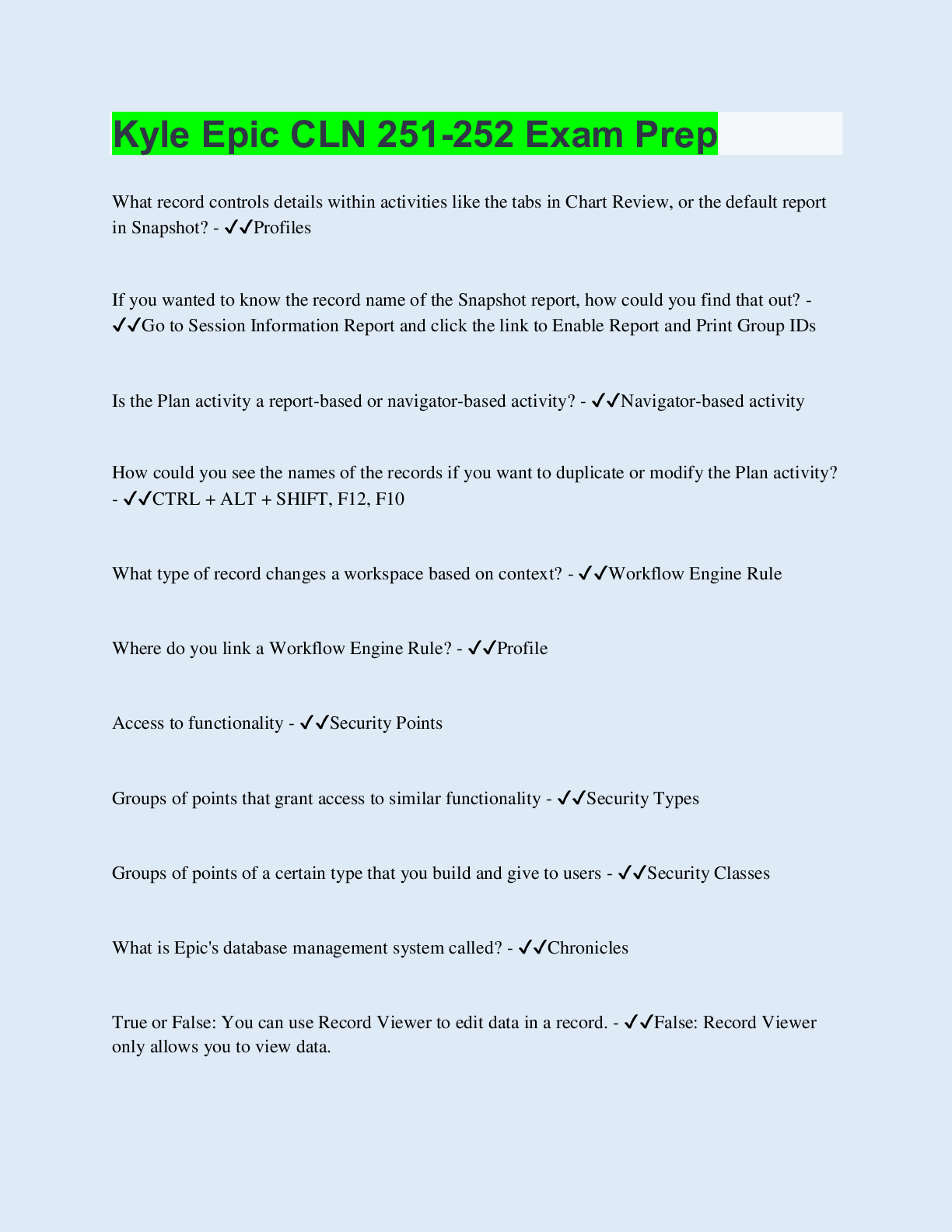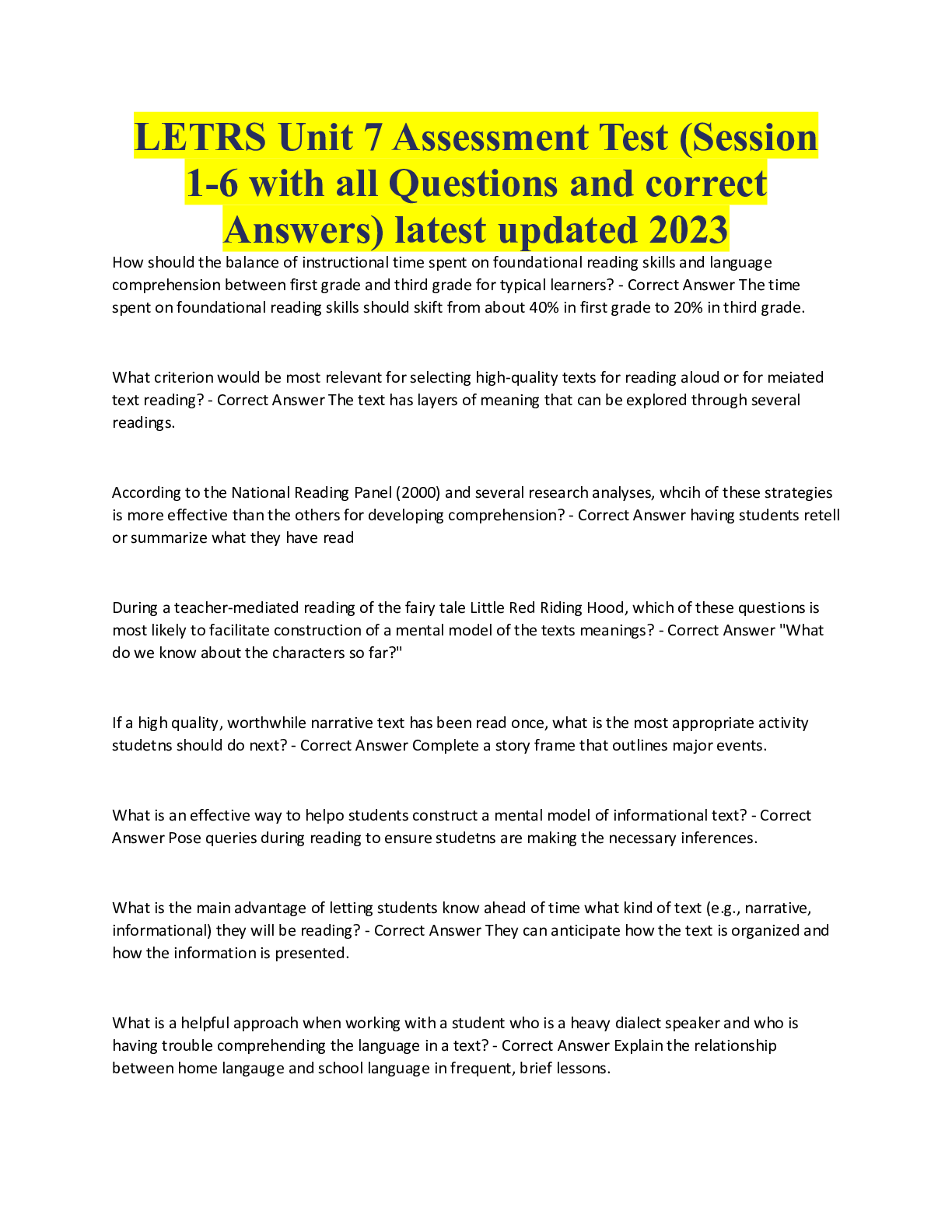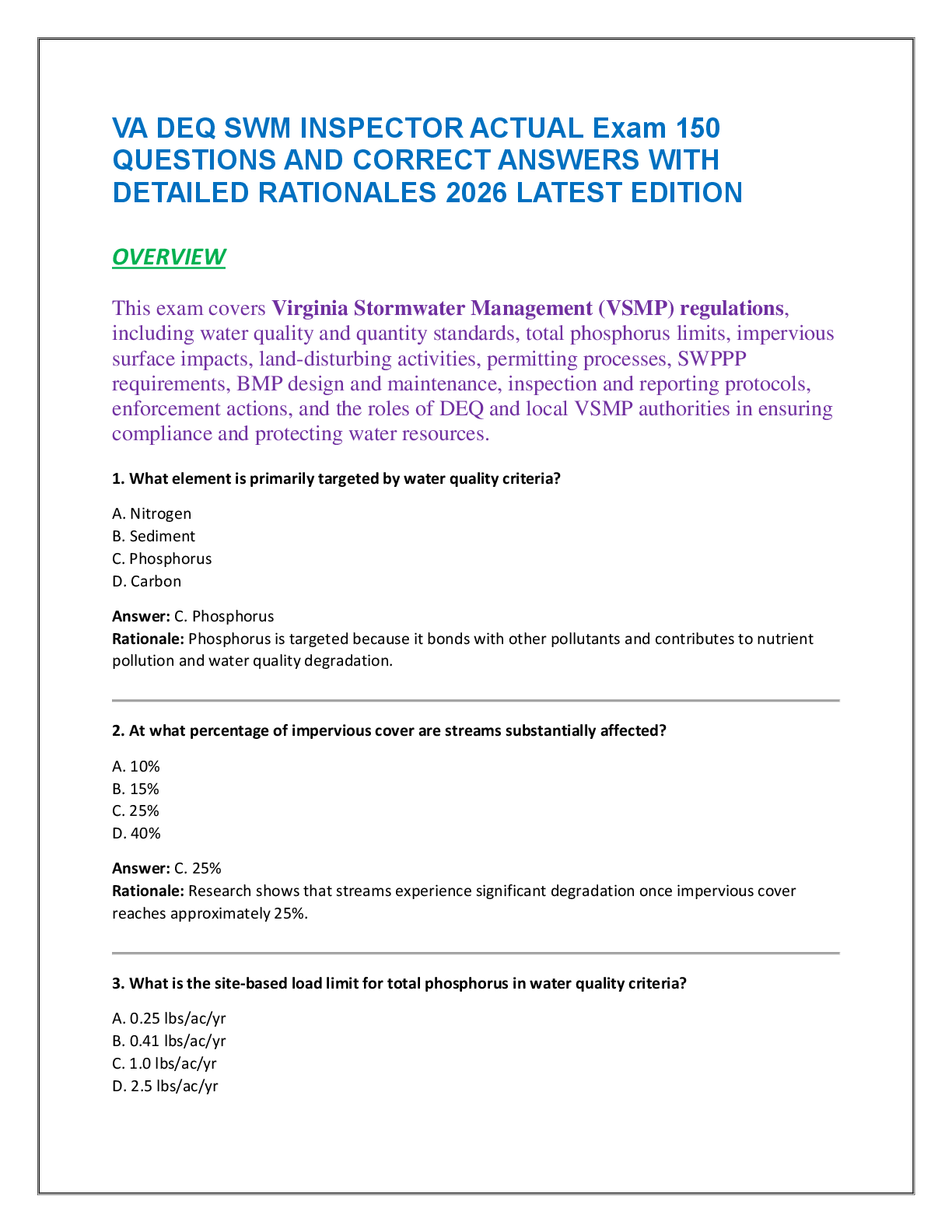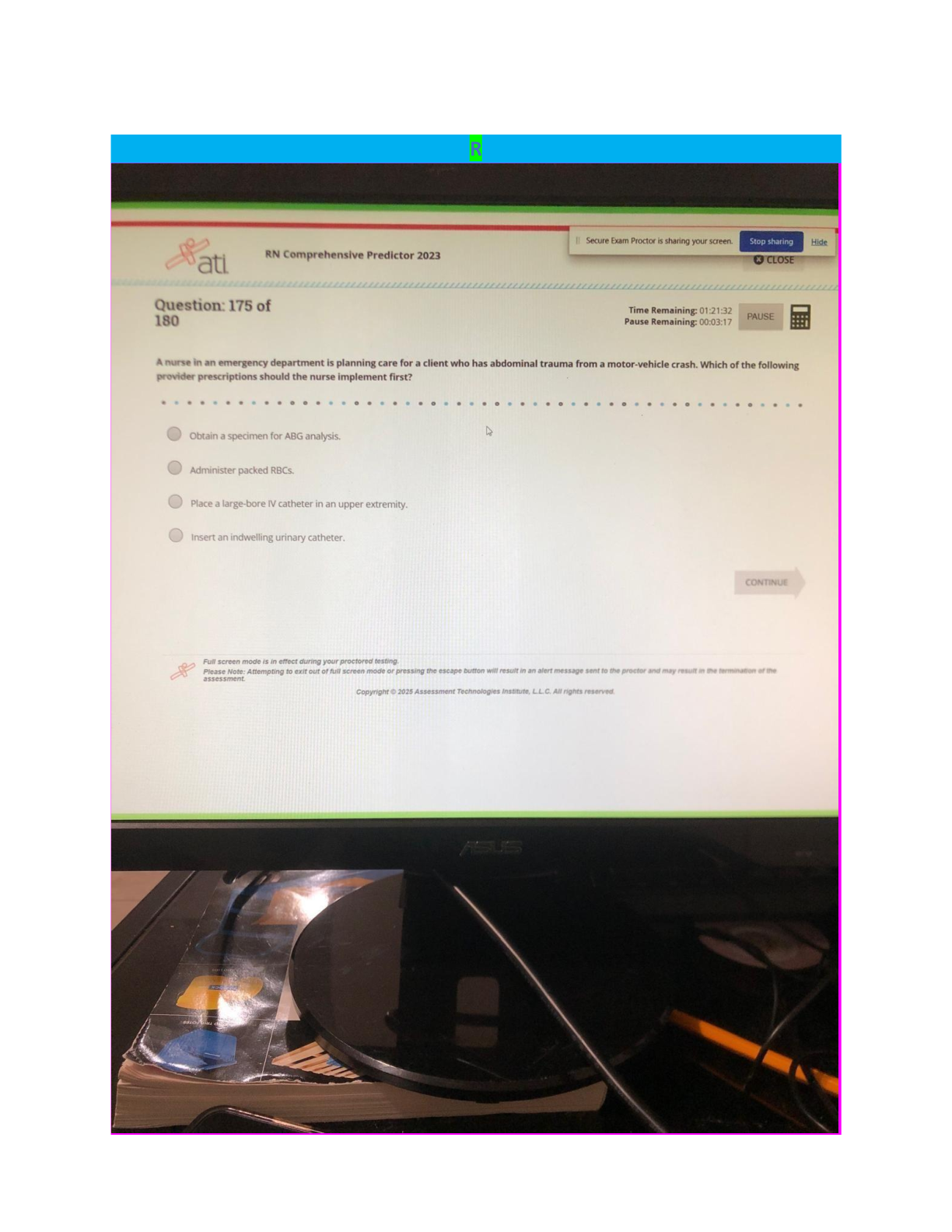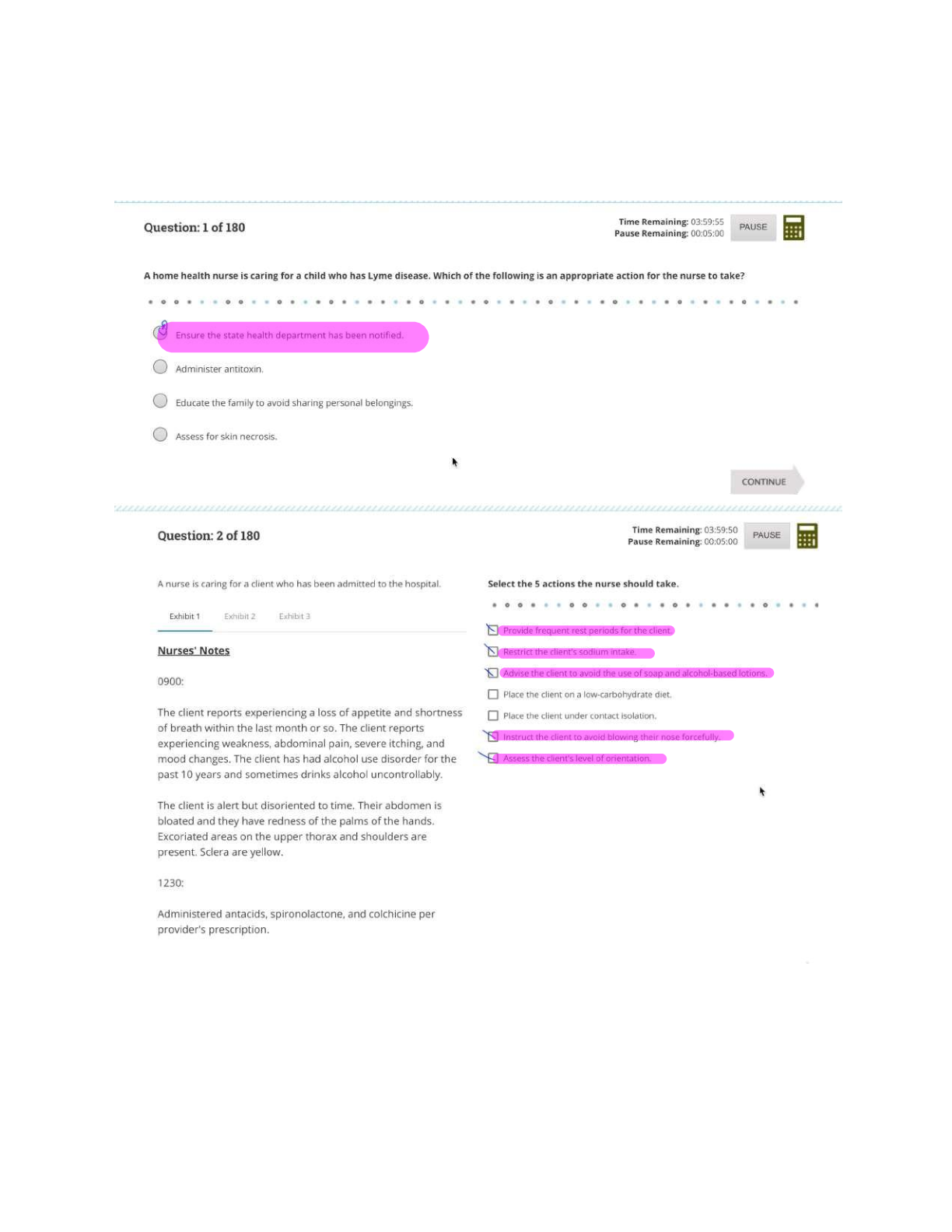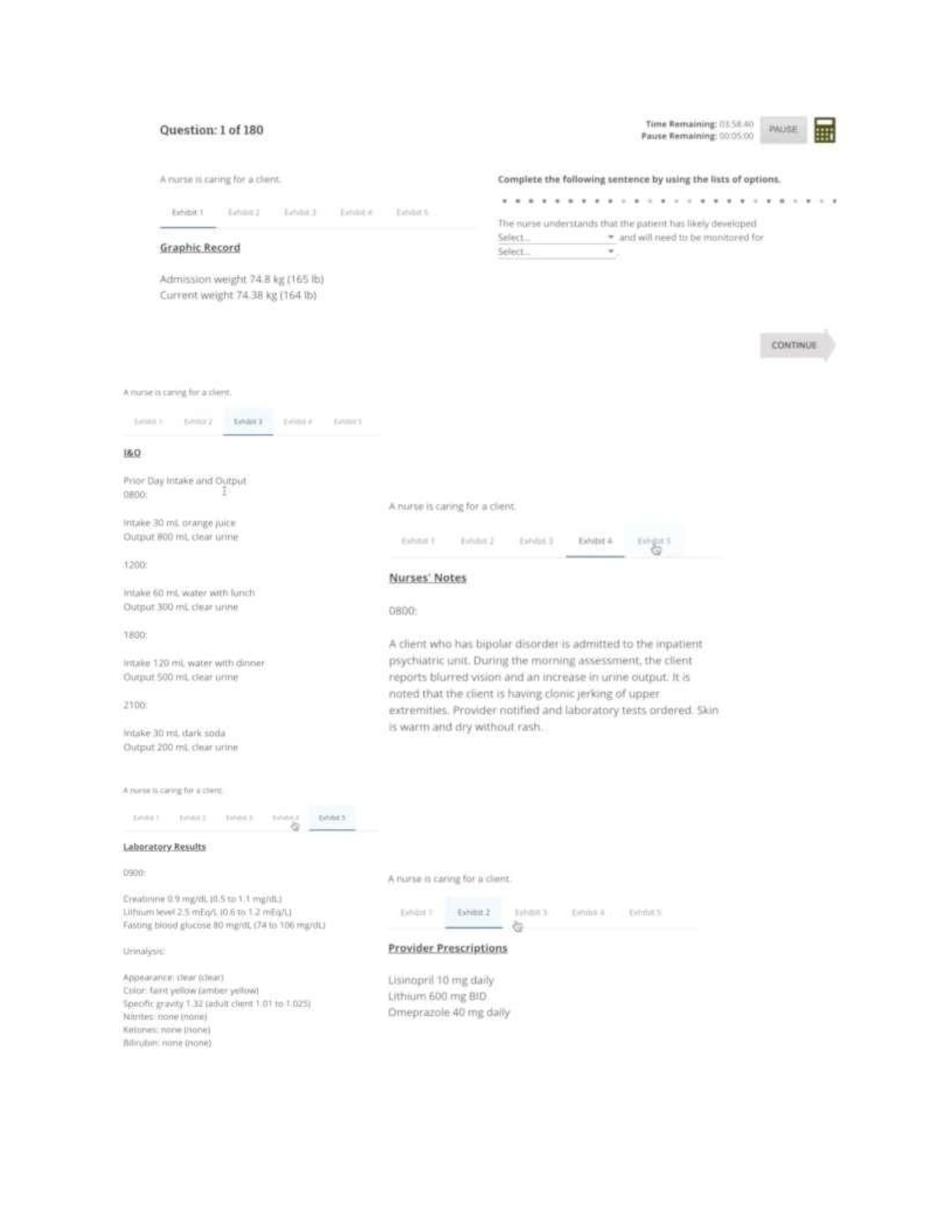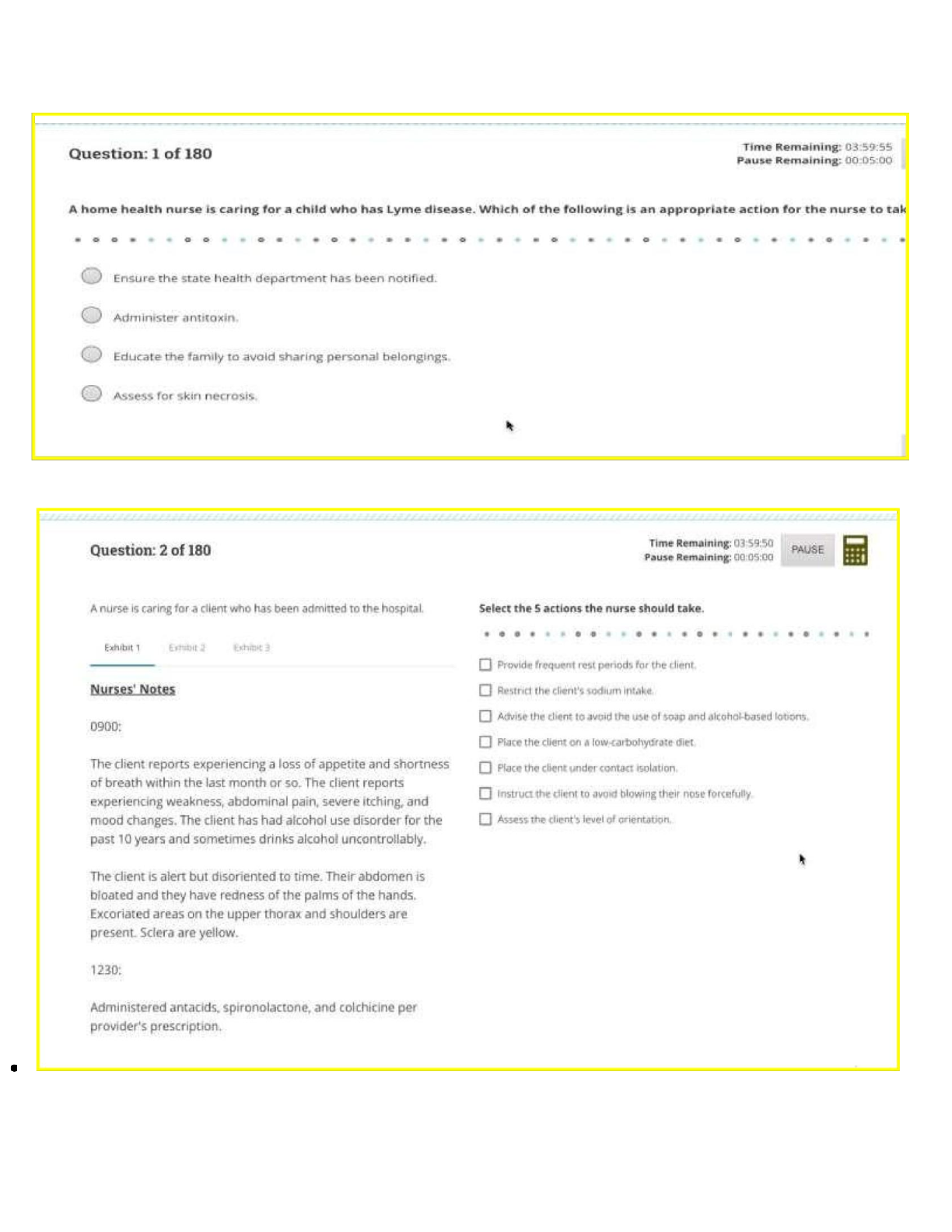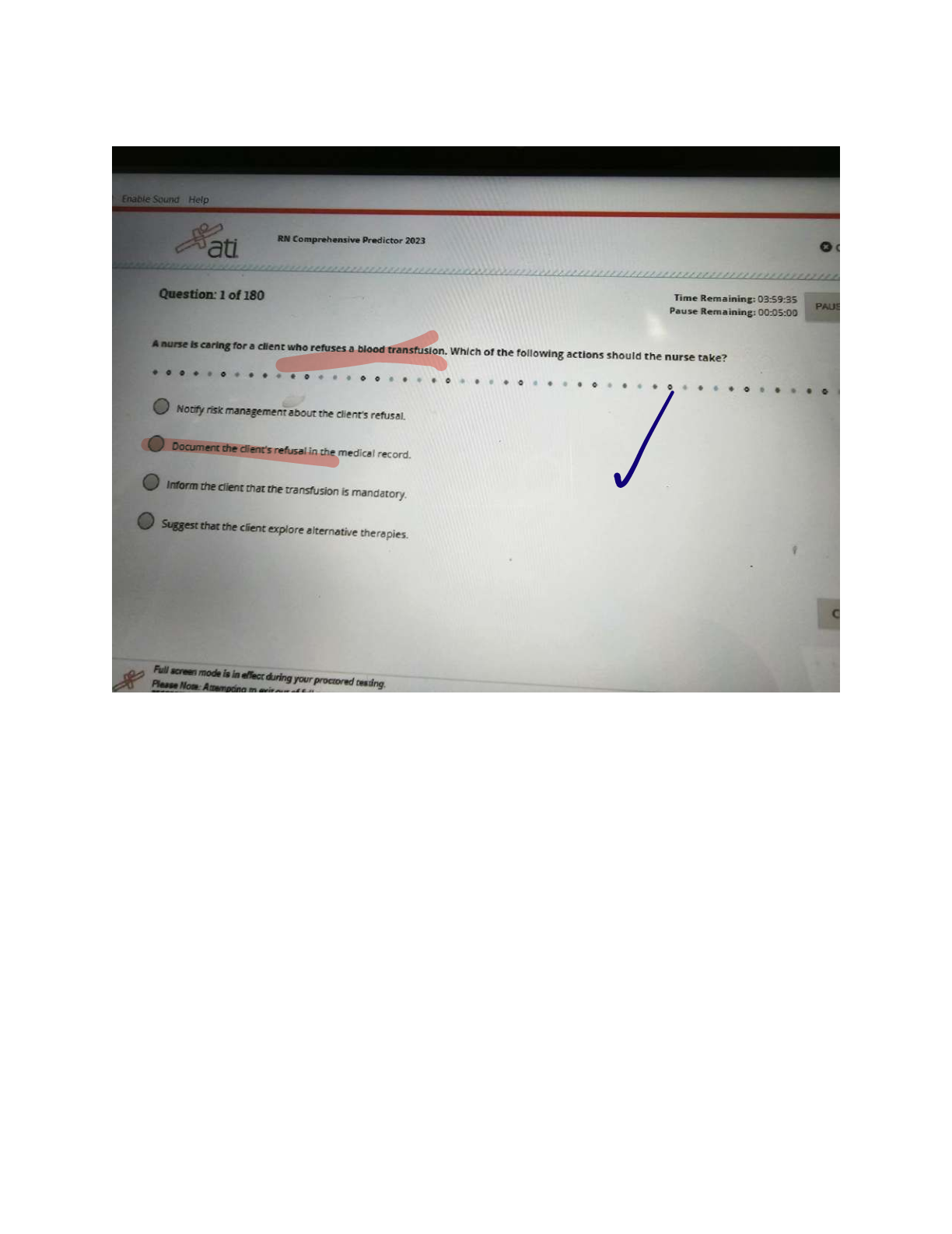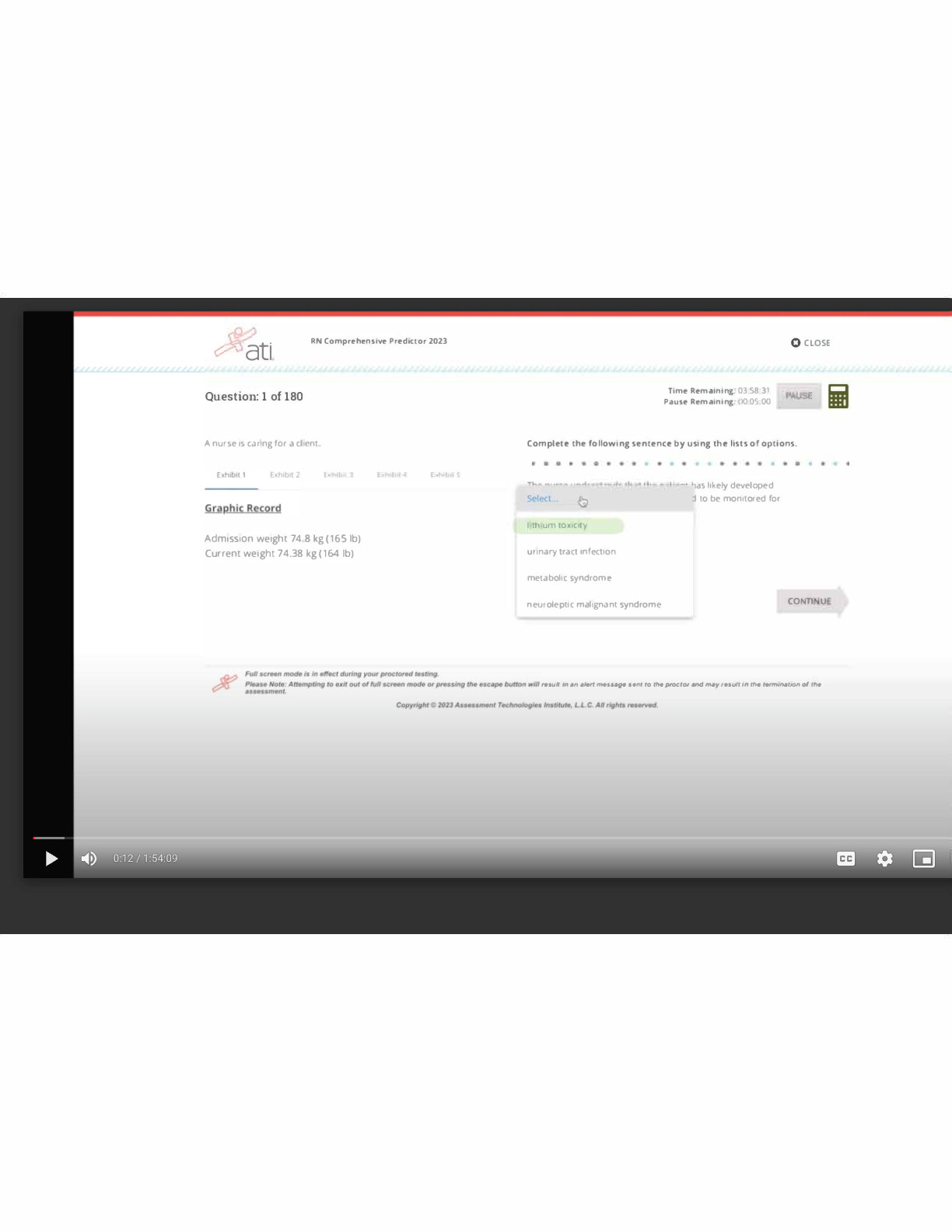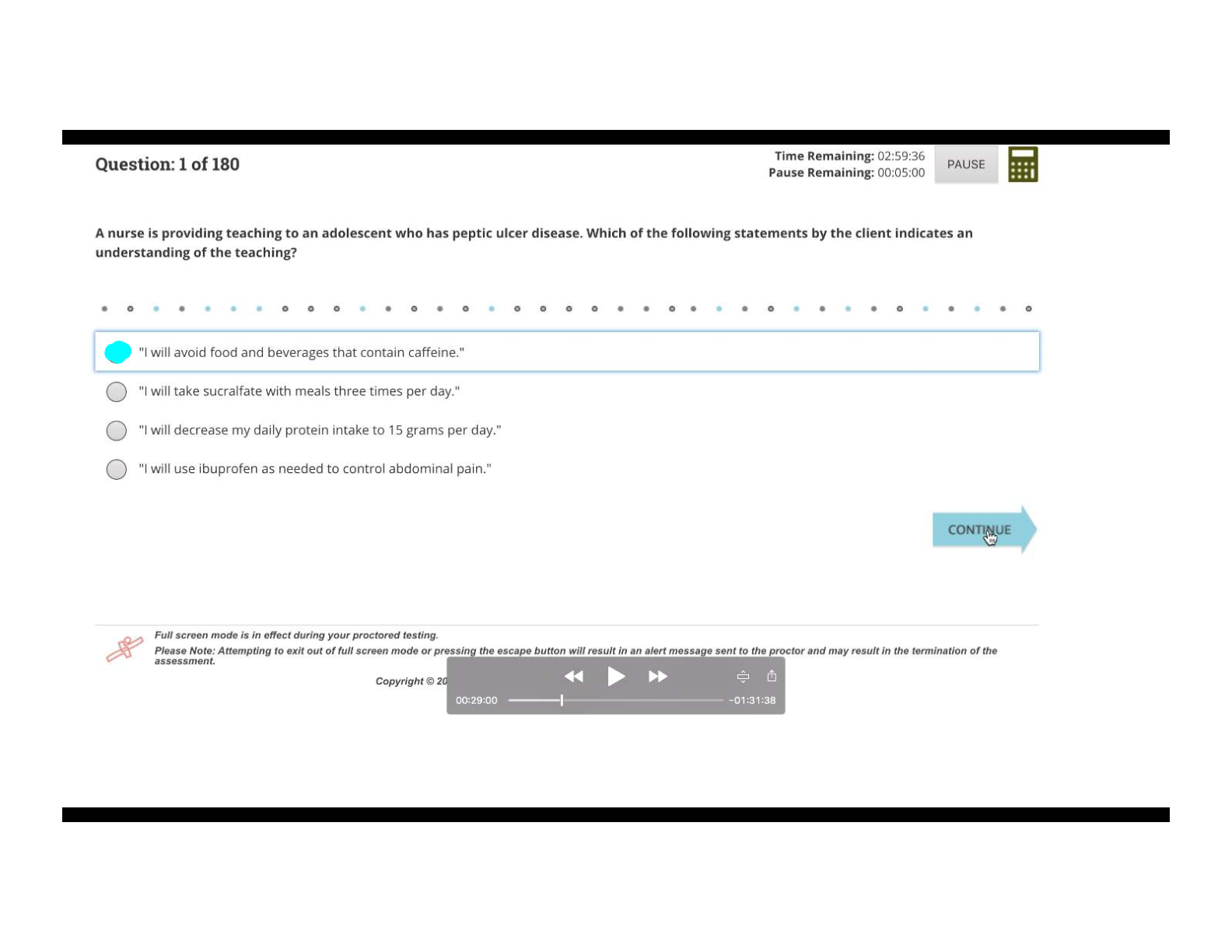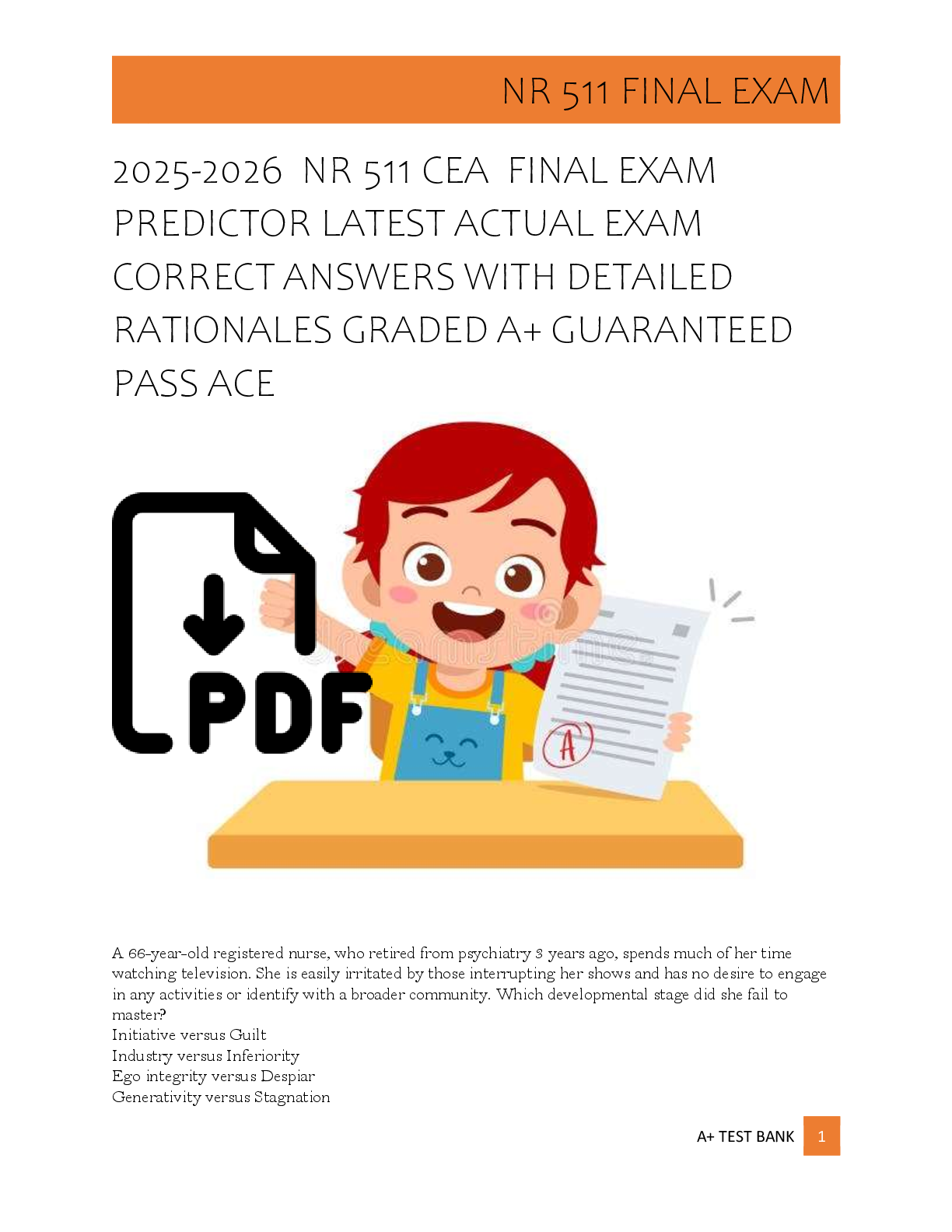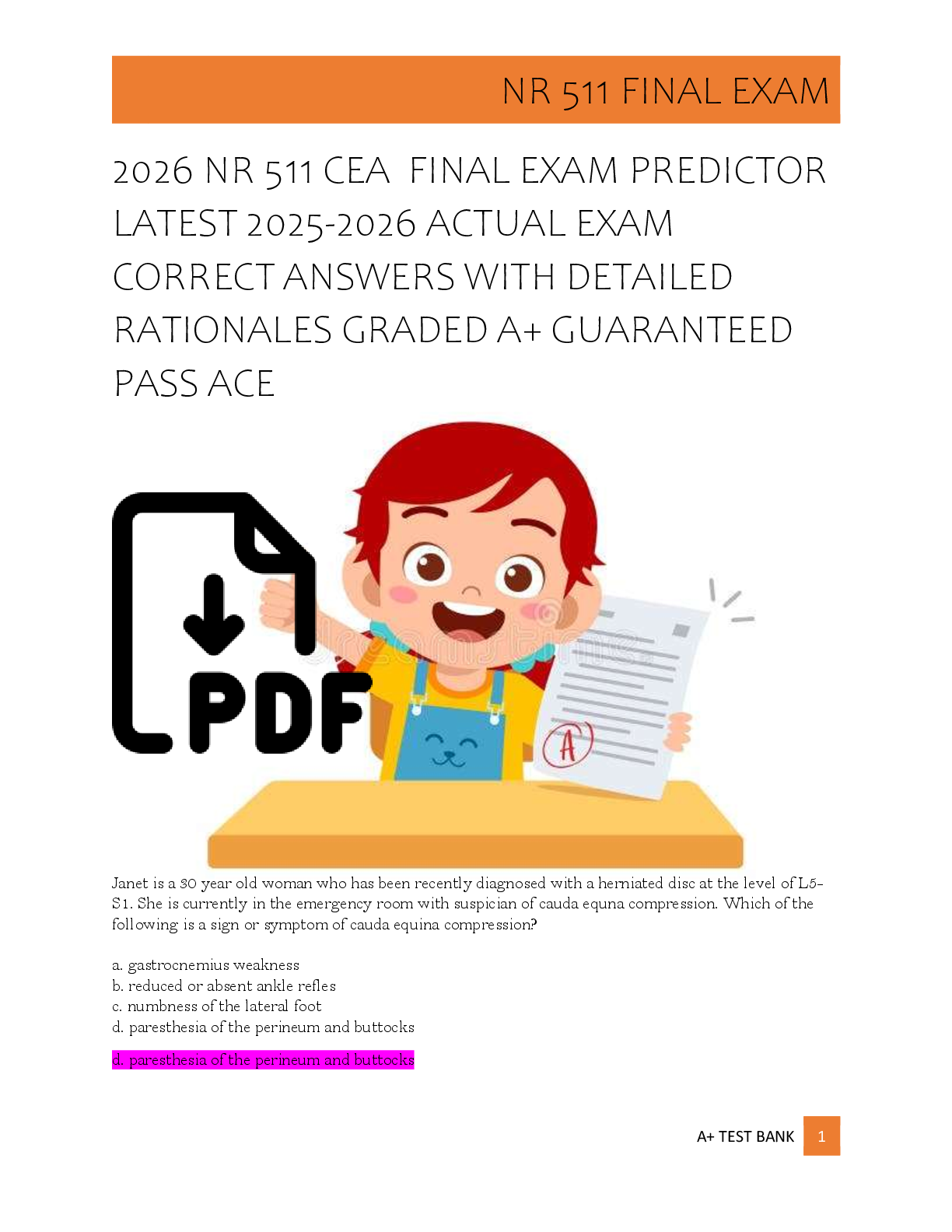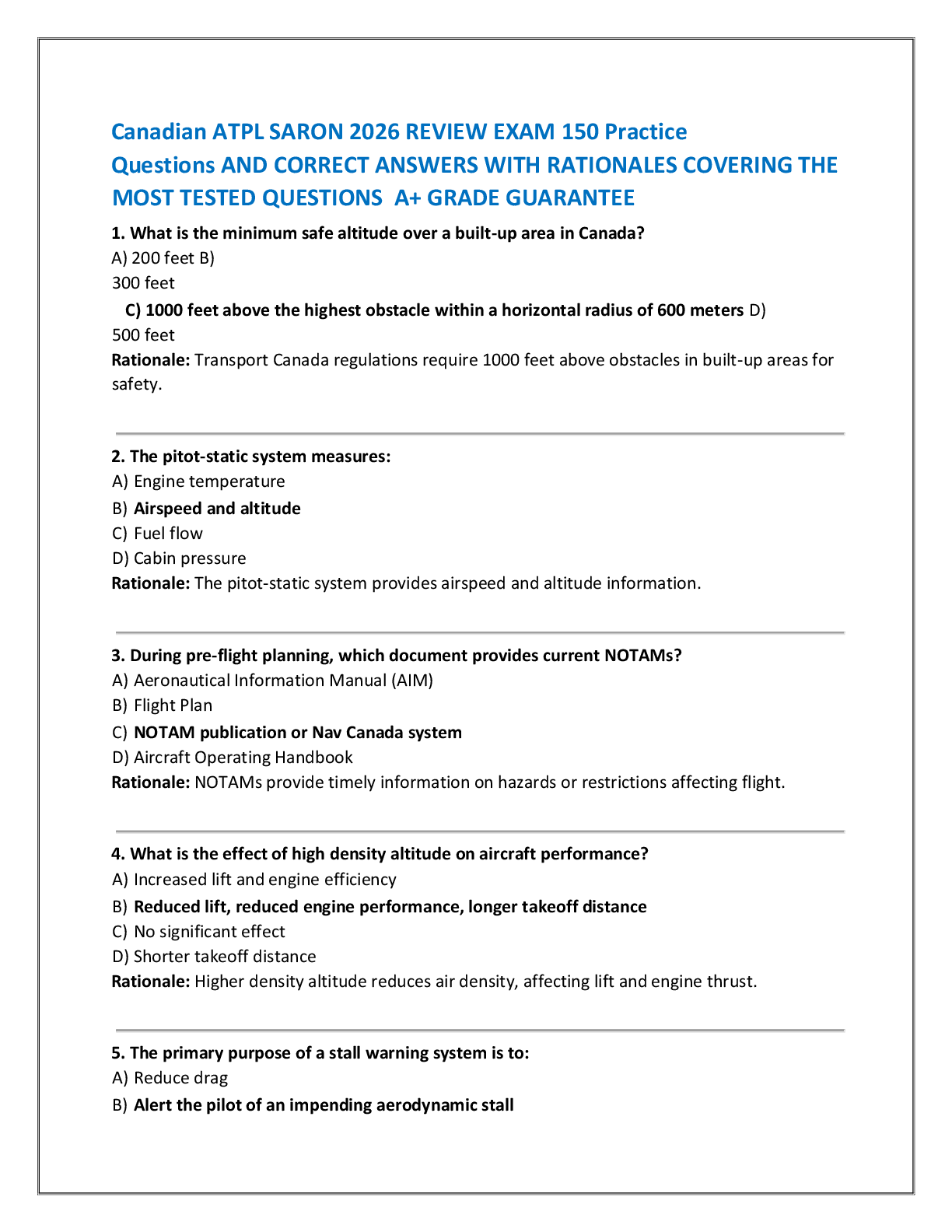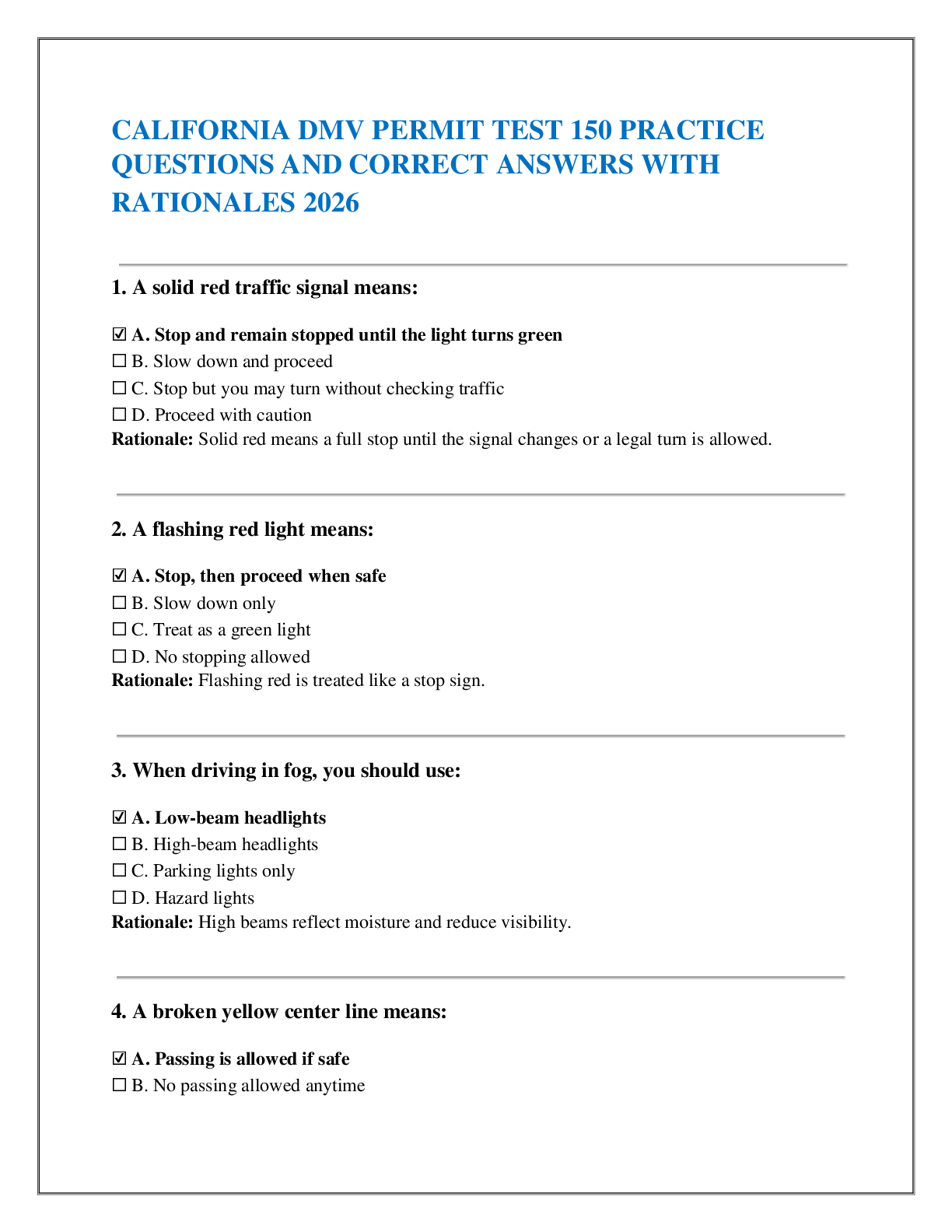FTCE Professional Final Exam Study Guide Answered 100% Correct
Inductive Thinking - ANSWER requires experimentation and research; moves from the concrete to the general; project-based
Primary concern of educators -
...
FTCE Professional Final Exam Study Guide Answered 100% Correct
Inductive Thinking - ANSWER requires experimentation and research; moves from the concrete to the general; project-based
Primary concern of educators - ANSWER Development of students' potention
All lessons should be based on... - ANSWER Standards
Lessons should start by... - ANSWER Assessing and activating prior knowledge; reviewing pre-requisite skills
The type of motivation we want in students - ANSWER Intrinsic (curiosity)
Optimal role of the teacher in student behavior - ANSWER Facilitate self-regulation
The role of assessments - ANSWER Know if the instruction is effective and if the skills have been mastered
When should we use intervention programs? - ANSWER For students who continuously fail/don't progress
Effective classroom rules - ANSWER -discussed with students
-posted
-reviewed periodically
-consistently enforced
Student-centered classroom - ANSWER Mixed ability groups; cooperative learning activities
The best way to increase learning - ANSWER motivation
Effective teachers - ANSWER knowledgeable, reflective, monitor student performance and provide intervention
Action research - ANSWER -collection of data about current education practice and resulting outcomes in order to reflect and develop an improvement plan
-anecdotal records, audio, video, results of assessment
Best way to prepare for a new unit - ANSWER provide clear expectations - projects and their rubrics
Proximity control - ANSWER gets students back on track without being disruptive
Effective directions - ANSWER Clearly provided - orally and in writing
Objectives - ANSWER Should be specific and measurable
-say what students should know/be able to do at the end
Best way to increase student focus - ANSWER ask questions about the subject
How to verify if the curriculum is lacking in certain areas - ANSWER use the gradebook
Reasons for revocation of license - ANSWER -immoral acts
-false information
-failure to report arrest
-failure to report abuse
Professional development - ANSWER -should focus on improving classroom performance
Software should only be used - ANSWER to teach/reinforce standards
Rigor - ANSWER critical thinking, problem-solving, making predictions
What should be done when students repeatedly fail on the same skill? - ANSWER Reteach and practice pre-requisite skills
Creative thinking - ANSWER Produce original, creative materials
Proper corrections - ANSWER Identify what is wrong and provide the correct answer
When do students score higher on exams? - ANSWER When they are familiar with the test format and the content covered
What is the best evidence of successful PD? - ANSWER Increase in student performance
How to best teach vocabulary - ANSWER In context
How to best encourage exploration of personal interests - ANSWER Choice, not creativity
When are modifications necessary? - ANSWER Student below grade level and classroom accommodations aren't enough
When is feedback effective? - ANSWER Specific, constructive, relevant, immediate, and sincere
reciprocal teaching - ANSWER Allows the student to alternate between the role of a student and a teacher.
-predicting, questioning, clarifying, summarizing
criterion-referenced test - ANSWER tests for standards
What should teachers do about new tools? - ANSWER Discuss with principal and share with all faculty through PD
reflective learning community - ANSWER teachers meet regularly to reflect on instructional methods
school improvement plans - ANSWER designed by the school advisory council and implemented by the principal and staff
PD goals - ANSWER relevant, measurable, based on student needs
Until when may students retest on a skill? - ANSWER Until they demonstrate mastery
redirects - ANSWER used to encourage critical thinking
e.g. asking if students agree or asking to expand on something
the best timing for feedback - ANSWER 24-48 h after
IEP annual goals - ANSWER individualized, detail what needs to be accomplished and how well (behavior - conditions- criteria)
Best resource for teachers - ANSWER professional learning community/other teachers
Parents should be called for... - ANSWER positive comments and academic concerns
What is the impact of self-assessment of comprehension? - ANSWER Students focus on the lesson objective
What type of skills does student-centered learning use? - ANSWER higher order
What should teachers who teach ELL students do when they don't have the ESOL endorsement? - ANSWER -send out-of-field letter to parents
-continue working on satisfying the requirement
Best way to understand cultural background of students - ANSWER allow them to share personal experiences with the class
stanine scores - ANSWER used in norm-referenced tests to compare student performance
-single-digit number stands for percentage
e.g. 7 = did as well or better than 70% of students
transition management - ANSWER seamless change of activity within the lesson
Where can differentiation occur? - ANSWER process (how something is delivered), products (how something is assessed), learning environments
NOT the standards
LEP committee meetings include - ANSWER parents, ESOL and Gen-Ed teacher, psychologist/social worker
Modifications - ANSWER alternative assessments; change target skill or construct of learning (lower performance expectations - amount of content or complexity)
First step for accommodations - ANSWER develop a behavior inventory
personal discovery inventories - ANSWER students list characteristics about themselves
(inductive)
The best way to help students retain information is to - ANSWER outline objectives at the beginning and review them at the end
What's an IEP? - ANSWER individualized education program/plan to support students with disabilities
What is the process of an IEP? - ANSWER Identify the need, evaluate, decide eligibility, IEP meeting and writing of the IEP, provide services, measure progress, review IEP, re-evaluate child
Bloom's taxonomy levels - ANSWER cognitive, affective, psychomotor
What are the main guidelines for cooperative learning? - ANSWER -guided by standards
-teacher is a facilitator
-groups of 2-4 with defined roles and expectations
-short/long term rewards to motivate
-evaluate group and individual
What is the best classroom arrangement for academic and social needs? - ANSWER academic - rows
social - open concept
In what two ways can behavior management be used? - ANSWER -prevention
-intervention
Ivan Pavlov's classical conditioning - ANSWER pairing neutral stimuli with unconditioned stimuli results in learning a conditioned response to a stimuli that was neutral in the past
E.L. Thorndike's law of effect - ANSWER behaviors with positive consequences are more likely to be repeated and those with unfavorable consequences are not as likely to be repeated
B.F. Skinner's operant conditioning - ANSWER reinforced behavior is more likely to be repeated and behavior that is not rewarded or punished is less likely to be repeated
reinforcement - ANSWER - increase the likelihood of behavior to be repeated
-positive ->praise, reward
- negative -> removal of undesirable stimulus
Premack principle - ANSWER pair undesirable behaviors with desirable acts to induce students to engage in less desirable acts
(i.e. offering a reward for doing something undesirable)
punishment - ANSWER -decreases the likelihood of repeat behavior
-should be fair and justified by explanation
extinction - ANSWER a learned behavior no longer elicits an expected reinforcement or isn't paired with an unconditioned stimulus
*happens when there's failure to reinforce
Bandura - ANSWER learning occurs through observation of modeled behavior and consequences of the behavior
Meichenbaum's model of self-regulated learning - ANSWER practice modeled behavior by forescasting rewarding and negative consequences
types of bullying victims - ANSWER -passive (no defense; just suffers)
-provocative (tease and irritate bully; can't defend himself)
Accommodations - ANSWER Do not reduce learning expectations or change the test construct
- change presentation and how students respond
What are the four categories of accommodations? - ANSWER -timing
-presentation of material
-setting (quiet room, small group)
-response (formats)
How can teachers be effective communicators? - ANSWER know audience, mini-lecture (10-20 min), variety of presentation techniques, stop and check for understanding
Listservs - ANSWER compilation of all email addresses under one address (send to all)
fishbone diagram - ANSWER cause-effect graphic organizer
culturally responsive classroom - ANSWER -teacher recognizes the kids want to learn
-strategies and behaviors used to encourage students
-instructional programs prevent failure and increase opportunity
seven learning styles - ANSWER -visual (spatial)
-aural (auditory-musical)
-verbal (linguistic)
-physical (kinesthetic)
-logical (mathematical)
-social (interpersonal)
-solitary (intrapersonal)
institutional challenge - ANSWER belief that everyone can learn in the same way and use the same measure
Gardner's Multiple Intelligences - ANSWER -visual-spatial
-bodily-kinesthetic
-musical
-interpersonal
-intrapersonal
-linguistic
-logical-mathematical
Brain hemispheres - ANSWER -left --> academic and logical, language, right hand
- right --> artistic, music, intuition, left hand
Bloom's Cognitive Domains - ANSWER Remembering; Understanding; Applying; Analyzing; Evaluating; Creating
Piaget's Cognitive Development - ANSWER 1- Sensorimotor (birth - 18/24 months)
2- Preoperational (18/24 months - 7 y/o)
3- Concrete Operational (7-12)
4- Formal Operational (adolescence to adulthood)
Sensorimotor stage - ANSWER -only aware of what's in front of you
-object permanence
Preoperational stage - ANSWER -think symbolically
-memory, imagination, language
-no reliance on logical skills
Concrete Operational stage - ANSWER -logical thinking
-less egocentric
-reversibility of actions
Formal Operations - ANSWER -abstract concepts and relationships
Depth of Knowledge (DOK) - ANSWER -recall and reproduction (list, identify, define)
-skills and concepts (compare, contrast, classify, describe, explain, summarize, infer)
-strategic thinking (analyze, explain with evidence, generalize, create)
-extended thinking (synthesize, reflect, conduct, manage
Jerome Bruner - ANSWER the mind is guided by experience to make predictions about the future
-students should be equipped to invent things for themselves
parallel thinking - ANSWER working together to address a subject rather than to argue
divergent reasoning - ANSWER generate multiple answers; higher level thinking
response to intervention model - ANSWER prevention system to identify students with academic skill weakness and learning disabilities
What should teachers do if students do not show progress from an intervention? - ANSWER outside coaches to assist
What is a curriculum-based measurement? - ANSWER An assessment that is driven directly from the curriculum being taught (would be derived from standards)
What are the three areas of differentiation? - ANSWER -content
-process and techniques
-products (by students)
What are the different types of academic intervention? - ANSWER -acquisition
-proficiency/accuracy
-proficiency/speed
-generalization
-motivation
Acquisition techniques - ANSWER Is the task too difficult for the student?
e.g. guided reading, peer-assisted activities, tutoring
Proficiency/Accuracy techniques - ANSWER Does the student need more support?
e.g. cover/copy/compare, response cards
Proficiency/Speed techniques - ANSWER Does the student struggle with time?
e.g. repeated readings, partner reading, peer-assisted
Generalization techniques - ANSWER Has the student successfully done the task before?
e.g. functional mediators, train diversely
Motivation techniques - ANSWER Does the student lack motivation?
e.g. drill practices, mystery
Literacy - ANSWER ability to read, write, speak, listen, and think effectively - enables learning and communication
What are the three cognitive components of content literacy? - ANSWER -general literacy skills
-content-specific literacy skills
-prior knowledge of content
achievement test - ANSWER standardized test to measure knowledge/skills
alternative assessment - ANSWER may require students to answer open-ended questions, solve a problem, demonstrate a skill, produce work
authentic assessment - ANSWER measures a behavior in "real world" context; practice an entire concept
constructive-response question - ANSWER create something rather than choose from a list to answer the question
criterion-referenced test - ANSWER level of mastery
holistic method - ANSWER assign a single score; evaluates product, not process
outcome - ANSWER usually a culminating activity, product or performance that can be measured
performance-based assessment - ANSWER ability to apply knowledge in real-life setting; rubric or analytic scoring guide to guide with objectivity
running record - ANSWER used to assess reading level as a student reads from a benchmark book or selection
What are the most common alternative assessment techniques? - ANSWER portfolios and projects
What are the components of a cognitive objective? - ANSWER Condition, behavior, degree
school advisory council (SAC) - ANSWER -reflective of the community (includes principal)
-voting members
-must meet when members can attend and send agenda two weeks prior to meeting
-keep minutes
-responsible for school improvement plan and its evaluation, approve budget
elections for SAC - ANSWER nominations are invited by the principal; names and ethnic/racial info of winners is sent to the school board
-vacancies during the year may be appointed members
-elected in an equitable manner
What must be the composition of a SAC? - ANSWER 51% + community members not employed by the district; reflection of community diversity
standards for professional development - ANSWER -individual needs assessment ---> IPDP includes measurable goals for student achievements, changes in practices and evaluation plan
- IPDP reviewed by administration
- sustained PD
-apply what was learned while receiving support (coaching and resources)
-evaluation of plan implementation and changes in practice and student performance
***a similar process is done once a year by schools through classroom-by-classroom analysis to develop a school-wide PDP
***at the district level, they must create opportunities for PD and evaluate their efficacy
Sections in the Code of Ethics - ANSWER 3
Obligations to the student - ANSWER -protect from harm
-pursuit of learning, diverse POV, accurate presentation of subject
-no embarrassment
-no violation of legal rights
-no discrimination or exploitation for personal gain/advantage
-keep identifiable info in confidence
Obligations to the public - ANSWER -distinguish between personal views and those of the organization
-no use of institutional privileges for gain/advantage
-no gift that can influence judgement
- no gift to obtain advantages
Obligations to the profession - ANSWER -honesty
-colleagues (do not deny participation, no harassment, discrimination, interfere with civil and political rights and responsibilities, no false or malicious comments
-no fraud or misrepresentation of qualifications
-self-report
-report violations
***No obligations to the district
Who investigates allegations of misconduct? - ANSWER Office of Professional Practice Services
LY vs LF - ANSWER LY - code while in ESOL class
LF - two year follow-up period after exiting ESOL
No Child Left Behind - ANSWER -no testing in languages other than English
-districts are responsible for programs to teach English
-accommodations for ELLs
Florida Consent Decree - ANSWER civil rights of ELL including identification, assessment, evaluation
Identification and Assessment of ELLs - ANSWER -Home Language Survey --> test within 20 days
-If LEP, notify in writing and enroll in ESOL program
*can be appealed by parents
Funding for ESOL in FL - ANSWER 5 years + 1 year if the student exists and reenters program
Teacher training for ELLs - ANSWER -15 semester hours
Alternatively: reduced # of credits or in-service hours + FTCE ESOL exam
Who monitors compliance with Florida Consent Decree? - ANSWER FLDOE
Stage sof language acquisition - ANSWER -Pre-production (silent period, non-verbal response)
-Early production (short answers, approx. 6 months)
-Speech Emergent (simple questions and sentences, conversation, classwork with assistance, simple texts)
-Intermediate Fluency (complex sentences, writing with errors, may seem fluent in social communication, high-order thinking)
[Show More]
